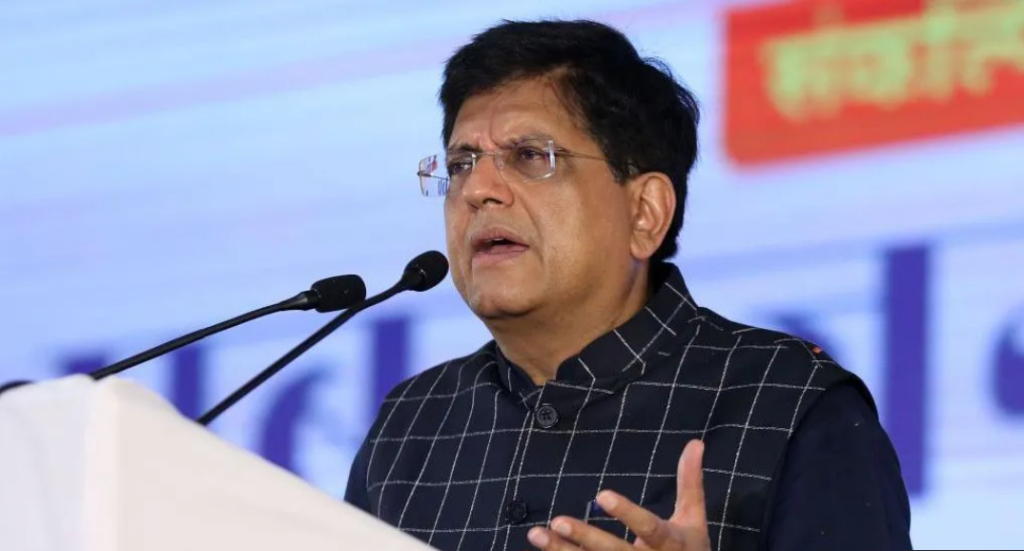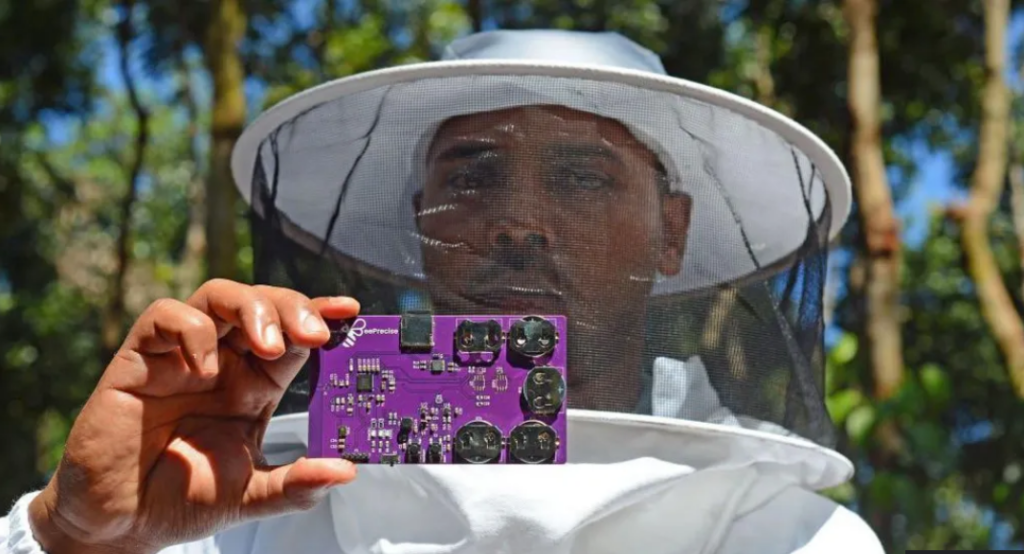
India’s Startup Scene Under Fire: Minister’s ‘Ice Creams vs AI’ Remark Sparks Storm
India’s Commerce Minister Piyush Goyal has stirred up a heated debate after his recent remarks seemingly downplayed the country’s booming startup culture. Speaking at the government-backed Startup Mahakumbh event, Goyal urged Indian entrepreneurs to move beyond lifestyle-focused ventures and instead innovate in cutting-edge tech sectors.
While addressing the audience, the minister took a subtle jab at food delivery platforms, artisanal products, and online gaming apps, contrasting them with countries that are investing in AI, robotics, and futuristic manufacturing. Without naming China directly, he pointed out that while “they” are building the industries of tomorrow, Indian startups are still busy perfecting gluten-free ice creams.
His statement quickly ignited responses across social media. Some startup founders defended Goyal, saying he was challenging the ecosystem to aim higher, while others felt the comments unfairly dismissed the hard work and economic contribution of consumer-driven startups.
The divide in opinion highlights a larger conversation — should India’s startup revolution shift gears toward deep tech, or is consumer innovation just as crucial?

Minister Goyal’s Call for Innovation Sparks Debate: “Ice Creams or Chips?”
India’s Commerce Minister Piyush Goyal’s comments about the startup ecosystem have sparked intense discussions among entrepreneurs and investors. Speaking at the Startup Mahakumbh, Goyal acknowledged India’s impressive rise as the third-largest startup hub globally but expressed a desire for even greater innovation, particularly in the technology sector.
While praising the rapid growth of new businesses, Goyal emphasized the need for startups to push boundaries and focus on more high-impact technologies. “If we want to be bigger and better, we need to be bolder,” he said. His call for faster progress was summed up by the rhetorical question: “Do we want to make ice creams or [semiconductor] chips?”
However, his remarks didn’t sit well with everyone. Aadit Palicha, co-founder of Zepto, was quick to defend consumer-focused companies like his own, which he believes are already driving innovation. Palicha pointed to Amazon and the likes of Google and Facebook, which started as consumer internet companies but went on to lead in cloud computing and AI.
Palicha argued that India’s startup ecosystem needs more investment in these types of companies to enable them to scale and reinvest their profits into more ambitious technological advancements.
Adding to the conversation, Mohandas Pai, a well-known angel investor, highlighted the challenge of funding deep-tech startups. While consumer internet companies are often favored for quick returns, deep-tech ventures require more patience, capital, and infrastructure. Pai noted that regulatory hurdles, particularly around foreign investments, were also hampering India’s deep-tech ambitions.
He pointed to a recent case where an Indian startup developed an innovative quick-charging battery for buses but struggled to find a market for its product.
The debate has now raised important questions about the balance between consumer innovation and deep-tech advancements in India’s startup ecosystem, and whether the country can nurture both.

Entrepreneurs Share Challenges as Goyal’s Comments Spark Mixed Reactions
Piyush Goyal’s recent remarks about India’s startup ecosystem have ignited a wave of reactions from both entrepreneurs and social media users. While some criticized his comments as overlooking the real challenges faced by budding tech entrepreneurs, others defended them as a necessary push for greater ambition in the country’s innovation landscape.
Many social media users took to platforms to share the difficulties they’ve encountered while trying to establish tech businesses in India. Some spoke about the struggle to secure loans, while others highlighted the burdens of high import taxes on essential foreign raw materials and equipment. In addition, red tape and bureaucratic delays were cited as major obstacles, with some entrepreneurs describing the process of obtaining necessary approvals and documentation as a nightmare.
However, some entrepreneurs supported the minister’s views, agreeing that his comments were well-intentioned and provided a much-needed reality check for India’s startup ecosystem.
Vironika S, founder of the edtech app Proxy Gyan, acknowledged that India’s leadership in the global economy would depend on breakthroughs in areas like AI and semiconductors. However, she also pointed out that there were tangible barriers to achieving these advancements, and the government could play a crucial role in easing those challenges.
Indian investor Kushal Bhagia echoed this sentiment, stating that Goyal’s comments on ambition were valid, particularly regarding the lack of deep-tech startups in India. He noted that there aren’t enough founders working on deep-tech innovations or tackling large, ambitious challenges. Bhagia attributed this to India’s tech talent leaving for opportunities in the US and a shortage of deep-tech role models in the country.
While the debate continues, the overall discussion underscores the need for deeper investments and structural changes to foster innovation and talent retention in India’s tech sector.

Minister’s Comments Spark Debate on India-China Start-Up Ecosystem Comparison
Piyush Goyal’s recent remarks about India’s start-up ecosystem have prompted an in-depth analysis of the differences between Indian and Chinese start-ups, with a particular focus on deep-tech investments.
In an article for Business Standard, journalist Abhijeet Kumar highlighted a significant gap between India and China in terms of funding for deep-tech sectors. In 2023, only 5% of Indian start-up funding was directed towards deep-tech, compared to 35% in China. He pointed out that China’s government actively promotes high-tech innovation by offering substantial incentives—such as slashing $361 billion in taxes and fees for high-tech companies, including $80.7 billion in research and development deductions.
The editorial published by Business Standard also noted that India’s start-ups tend to be more consumption-driven, focusing on using technology to solve local issues on a large scale. In contrast, Chinese start-ups have been at the forefront of creating global, groundbreaking technologies. The newspaper acknowledged that while India is home to over 4,000 deep-tech start-ups, the number is expected to grow to 10,000 by 2030. Furthermore, a report by Nasscom revealed that India’s deep-tech start-ups attracted $1.6 billion in funding in 2024, marking a 78% increase compared to the previous year.
Despite these positive trends, experts agree that India still has a long way to go. The editorial stated, “As the global deep-tech race intensifies, it is clear that India will need significant strides to catch up with countries like China.” It further suggested that Goyal’s comments should act as a “call to action” for start-ups, investors, and the government alike.
The editorial called for the creation of deep-tech innovation funds, stronger collaboration between academia and start-ups, and the introduction of incentives to accelerate advancements in hardware, AI, biotechnology, and clean energy.
